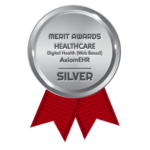Axiom Blends Innovation and Process Automations for an Unparalleled Customer Experience
PHOENIX, Nov. 7, 2019 – Health Information Management Systems (HiMS), an Electronic Health Records (EHR) software company, today announced its new value-based Axiom platform for integrated health care providers. In a market ripe for EHR tools with advanced features to improve patient care, productivity and profitability, HiMS is taking the industry to new heights.
“Axiom is an electronic platform that was designed from the ground up with clinicians in mind,” said Khalid Al-Maskari, CEO of HiMS. “Many EHRs on the market today are complex data repositories and users soon learn that trying to pull and compile population health information is an exercise in futility. Axiom is utilizing the latest technologies in artificial intelligence to provide better understanding of integrated health care data to empower clinicians to focus on treating patients.”
Unlike inefficient and inflexible legacy EHR platforms, Axiom is easy to customize through drag and drop features and has a user-friendly interface designed to help solve clinical problems. Axiom is specifically designed to take less than two clicks to complete any command to increase operational efficiency.
Axiom Key Features Include:
• Strong analytics for data-driven decisions
• Drag-n-Drop Dynamic Form Creator with no coding required
• Medical billing scheduling tools to speed up payment cycles
• ePrescribing for providers to track medications and patient safety
• Interoperability to support the exchange of clinical information across different care settings
• Includes automated, bi-monthly software updates
• 60-day FastTrac implementation
“When HiMS set out to design Axiom, they wanted to create a powerful tool that provided clinicians with easy data access for quality measurement and process improvement activities,” said Rod Cook, CEO, COPE Community Services Inc. “Axiom allows providers to monitor patient preventive care and chronic disease management, as well as provide decision-making aids, comparative analytics, and per-capita cost of care. All of which are vital to successful implementation of integrated care.”





